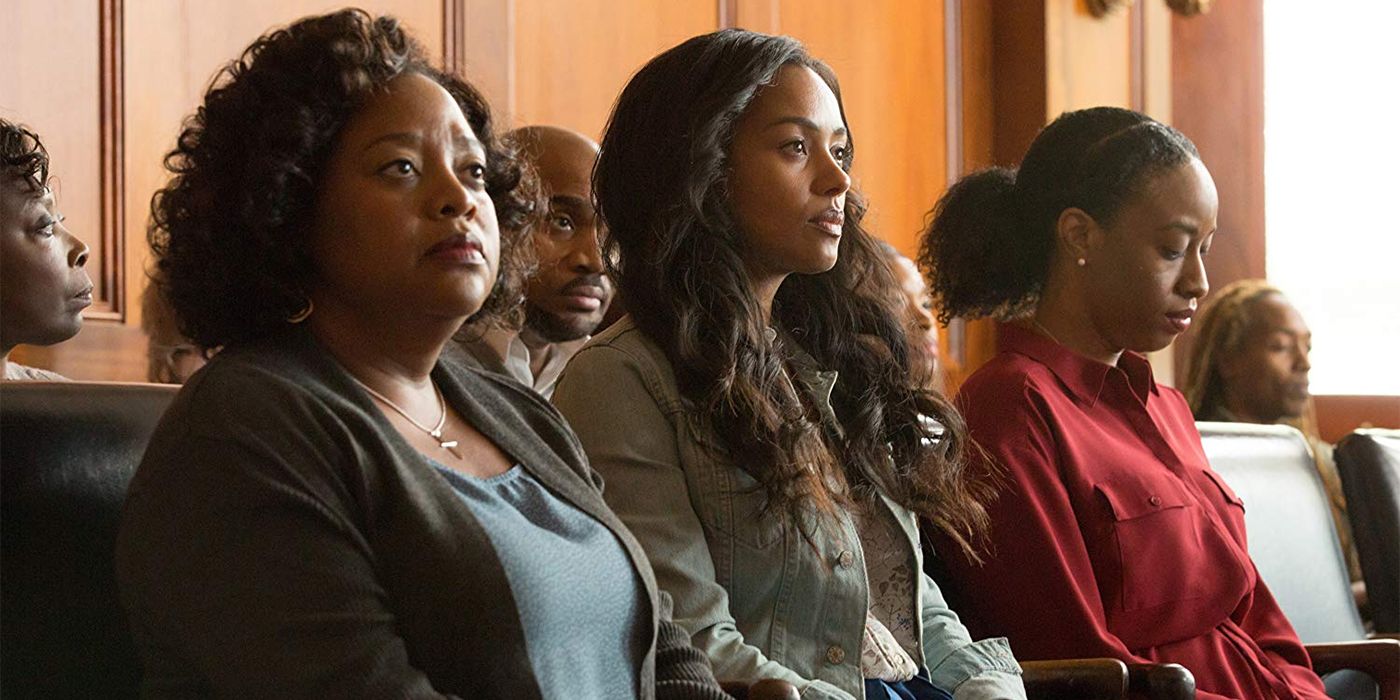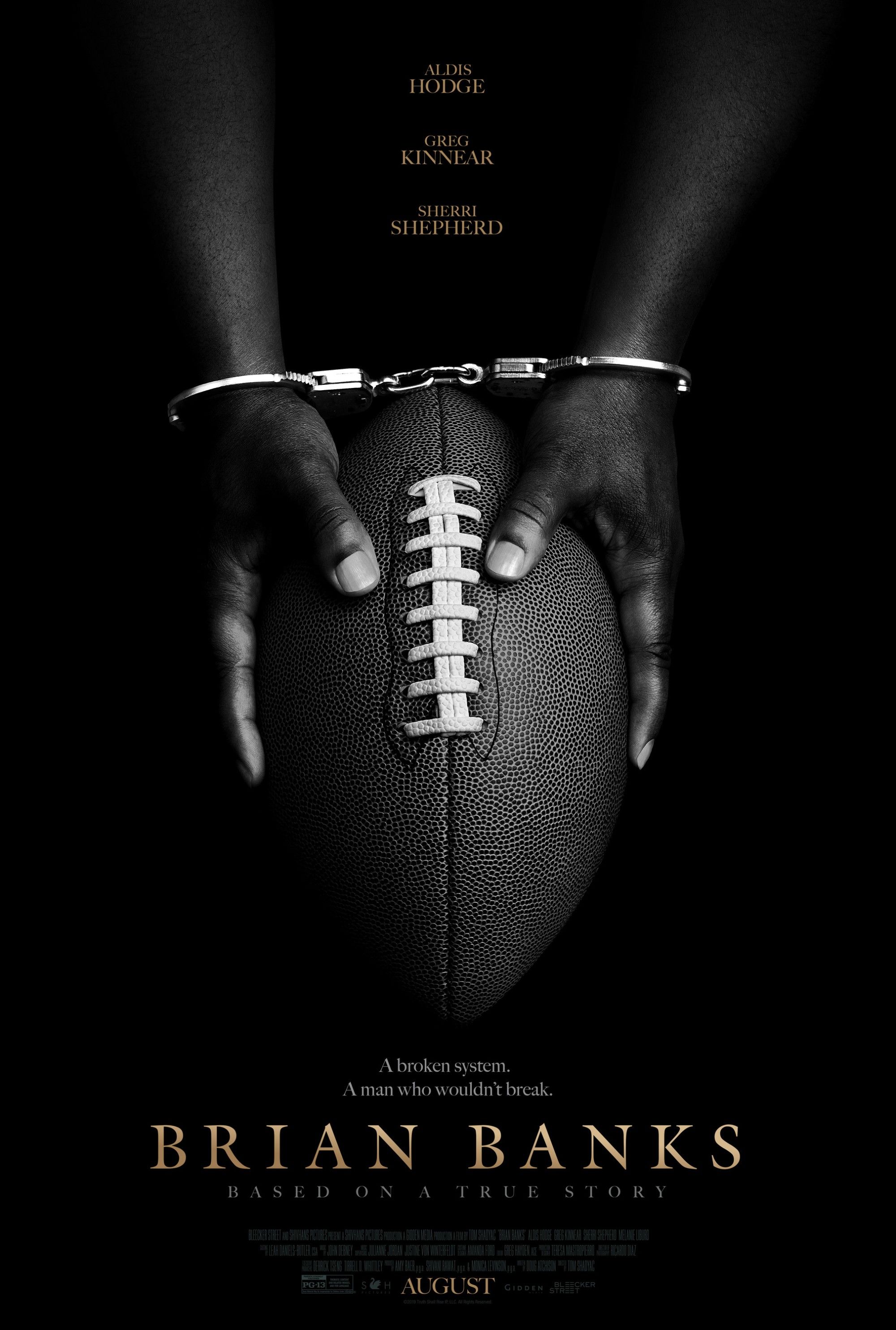Brian Banks, opening in theaters this weekend, is more than just a tale of one man's courage in the face of injustice. It's also a story of the loved ones who lifted him up. Sherri Shepherd and Melanie Liburd play two such character, his mother and girlfriend (who is actually an amalgamation of several people) respectively. Their support of Brian is what helped him power through his probation and fight to be exonerated, and the actresses shared their awe of both him and his family in a recent interview with Screen Rant.
Well, ladies, congratulations on Brian Banks. You both did an amazing job in the film. I love that you're both such strong support for Brian in the movie, and I'm wondering what was it that first connected you to your characters?
Melanie Liburd: For me, the courageousness of someone that's been through something quite tragic. And then to come through it and to not let it define you, but to work through it and find the hope. Karina finds that in Brian's story too and within meeting Brian. And I just think they’re the bravest people in the world.
Sherri Shepherd: I connected with her when I read the script and saw Leomia, Brian Banks’ mother. The courageousness that she had, the love for her son, the devastation of not being able to protect your child when something devastating happens. And her faith, how it got her through. And if you meet Leomia, she's very quiet, she’s very shy, she’s about to get her master's degree. But she doesn't feel like she's any hero. She just says, “I love my son.”
But that was the bedrock of his sanity, when he was going through his deepest and his darkest moments. So, I connected to her as a mother of a child who could very well be Brian Banks. And I just was inspired by Leomia.
The mother-son bond was really the heart of the film in many ways. What was it like developing that on set with Aldis?
Sherri Shepherd: Well, I have it with my child, and Brian Banks was on the set every day. So, I brought what I had, but Brian Banks would talk to me about his mother and how much love he had for her. He couldn't watch the scenes that Aldis and I did.
Then I had Aldis, who had his mother there all the time. So, he talked about how much his mother meant to him. It was all this mother-son stuff, and one thing Bryan said was that he would always look to his mother for everything.
So, in all the scenes, Aldis would always look at me and go, “Ma.” As if [to say], “I need you. I need you to help me.” And the devastation of being called to protect your child and not being able to protect your child in those pivotal moments, that's what I would get and how I how I got that mother son connection.
That’s amazing, I could really feel that. And Melanie, I think Karina is so important because she shows the other side of the justice system. People like Brian will be accused of things they didn't do, but also victims like Karina don't get to face their abusers; they don't get justice because of fear or neglect.
Melanie Liburd: They don’t. Karina actually was courageous enough to tell her story to the people that should have been protecting her within the college. And no one believed her, which is astounding, but it happens every day as well. Another common story that happens in on campus. To bring awareness to that, and for them to come together, it just shows a great balance within the film.
I agree. Overall, what message do you hope audiences take away from this story and from your characters?
Sherri Shepherd: I hope that parents can see that they make such a difference in their child's life, but also that we work to change the judicial system. That if, God forbid, your child is ever in front of a DA or a judge who holds the future of your child in their hands, you want to know you did the work to elect a person that will represent your interests. And little things, like, go and do jury duty. Because if something happens, you want someone who represents you. So, I'm hoping that people get that from this moment. I love
Melanie Liburd: I mean, this is happening every day. So, just to bring awareness. To make more movies like this to watch, like When They See Us, another movie that is that right now. Just to bring awareness is brilliant, to something that needs to change.
Sherri Shepherd: And also, if you look at Brian Banks – Aldis Hodge played him – he has the right to be bitter and not forgiving. But he has such a countenance of joy and a love of life. “I'm moving on, and I'm moving forward.” He wants to change the world. So, when you go through things, you can get through them when you look at Brian Banks.
I love that. It's almost a celebration that he's able to push forward, and stories like that really help us.
Melanie Liburd: It’s completely a celebration, and I hope people are inspired as much as we are by this movie. I read the script and was inspired, and honestly, I felt so uplifted from seeing this movie the first time. I was like “Whoa, this was great!”
I didn't know the story before, and I was like, “I have to learn more about CIP.”
Sherri Shepherd: California Innocence Project. To shine a light on this phenomenal organization that really tries to right wrongs, and they don't take a dime. So, to be able help them do what they do.
Thank you both so much.


